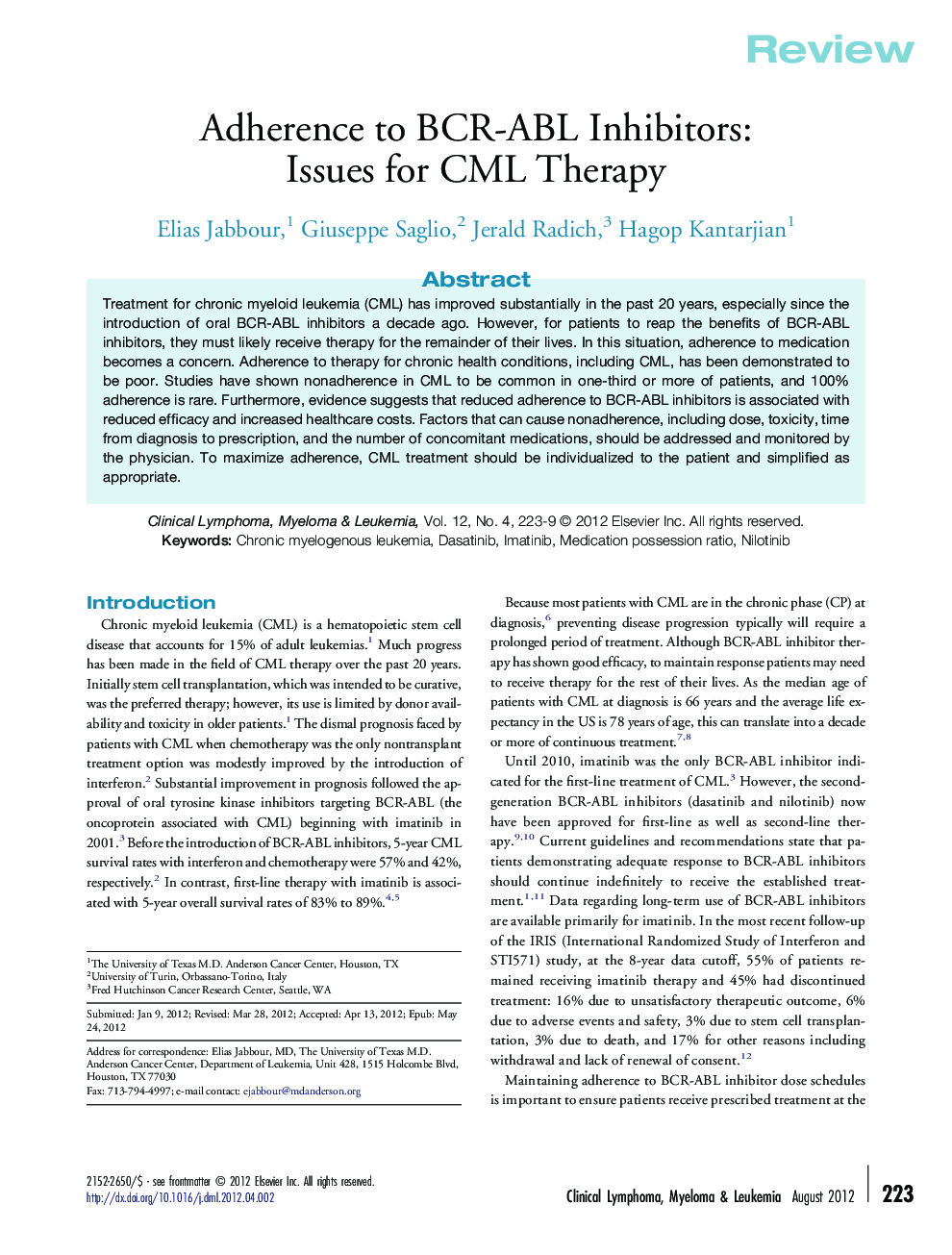| Article ID | Journal | Published Year | Pages | File Type |
|---|---|---|---|---|
| 2755281 | Clinical Lymphoma Myeloma and Leukemia | 2012 | 7 Pages |
Treatment for chronic myeloid leukemia (CML) has improved substantially in the past 20 years, especially since the introduction of oral BCR-ABL inhibitors a decade ago. However, for patients to reap the benefits of BCR-ABL inhibitors, they must likely receive therapy for the remainder of their lives. In this situation, adherence to medication becomes a concern. Adherence to therapy for chronic health conditions, including CML, has been demonstrated to be poor. Studies have shown nonadherence in CML to be common in one-third or more of patients, and 100% adherence is rare. Furthermore, evidence suggests that reduced adherence to BCR-ABL inhibitors is associated with reduced efficacy and increased healthcare costs. Factors that can cause nonadherence, including dose, toxicity, time from diagnosis to prescription, and the number of concomitant medications, should be addressed and monitored by the physician. To maximize adherence, CML treatment should be individualized to the patient and simplified as appropriate.
